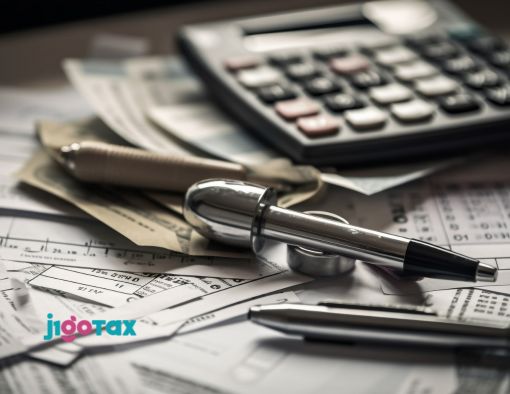Form W-2 for J-1 Visa Holders
If you worked in the U.S. on a J-1 visa, one of the most important documents you’ll receive is Form W-2. This form is issued by your employer and summarizes the wages you earned and the taxes withheld during the year. You’ll need it to correctly file your Form 1040NR (or Form 1040 if you qualify as a resident for tax purposes) along with Form 8843.
👉 For a complete overview of J-1 visa taxes, see our step-by-step guide.
👉 If you’re filing your return, don’t miss our detailed guides to Form 1040NR and Form 8843.

The Tax Moves Blog
What is Form W-2?
Form W-2, officially called the “Wage and Tax Statement,” is provided by your employer after the end of the tax year (usually by January 31). It shows:
-
Total wages earned (Box 1)
-
Federal income tax withheld (Box 2)
-
State income tax withheld (Boxes 17 and 19)
-
Social Security and Medicare taxes withheld (Boxes 4 and 6) – in most cases, J-1 visa holders should be exempt from FICA taxes
This form is essential for preparing your tax return because it tells the IRS how much tax has already been taken from your paycheck.
Why the W-2 Matters for J-1 Visa Holders
As a J-1 student, intern, or trainee, your W-2 often determines whether you are due a refund. Since most J-1 workers are exempt from certain taxes (like FICA) and qualify for treaty benefits, employers often withhold more than necessary. Filing your return allows you to claim that money back.
What If I Don’t Receive My W-2?
Sometimes employers are late or make mistakes. If you don’t receive your W-2 by mid-February:
-
Contact your employer’s HR or payroll department.
-
Check if you can download it from your employer’s payroll portal.
-
If you still don’t get it, you can request a Wage Transcript directly from the IRS.
👉 This is why it’s a good idea to create an IRS online account and wait until your wage transcripts are uploaded before filing your return. That way, you avoid errors and delays.
W-2 vs 1042-S: What’s the Difference?
-
W-2 → issued for wages and employment income.
-
1042-S → issued for scholarships, fellowships, or stipends subject to U.S. tax.
Many J-1 holders receive one or both forms, depending on their situation.
How to Use Your W-2 When Filing Taxes
-
If you have a W-2, you’ll generally file Form 1040NR + Form 8843.
-
Report the wages from Box 1 of your W-2.
-
Claim any eligible treaty exemptions to reduce taxable income.
-
Compare the federal tax withheld (Box 2) with your actual tax liability.
-
If too much was withheld, you’ll receive a refund.

Deadlines
-
April 15, 2026: Tax deadline if you had a W-2 and earned wages.
-
June 15, 2026: Deadline if you only need to file Form 8843 (no income).
J1 Go Tax
At J1 Go Tax, we specialize in helping J-1 visa holders file their taxes the right way. Whether you have a W-2, a 1042-S, or both, we’ll make sure you don’t miss deductions or treaty benefits. Best of all: if you don’t get a refund, you don’t pay.
Try our free J-1 refund calculator to instantly see how much you could get back.
Core Guides & Calculators
1. Learn everything about J1 visa taxes — our complete 2026 step-by-step guide for nonresident workers with W-2 income.
2. Estimate your refund instantly with our J1 visa tax calculator — no signup required.
3. Compare Form 1040 vs 1040NR for J1 visa holders and find out which one applies to you.
4. Understand the importance of your DS-2019 form — it defines your program, tax status, and eligibility.
Forms & Tax Documents
5. Did you receive a 1099 instead of a W-2? Here’s what to do — Form 1099 for J1 visa workers explained.
6. Learn how to apply for your SSN or ITIN as a J1 visa holder before filing your taxes.
7. Understand your IRS transcripts for J1 visa taxes — what they show and how to request them.
8. Received a Form 1042-S? Discover what it means and how to include it in your tax return.
9. Find your Form W-2 for J1 visa — and learn what each box means when you file.
10. File correctly using the official Form 1040NR for J1 visa holders — step-by-step.
11. Don’t forget your Form 8843 — it’s mandatory even if you had no income.
12. Check this J1 visa tax return example using Form 1040NR to understand how everything fits together.
Special Cases & IRS Resources
13. Missed the April deadline? Learn how to file J1 visa taxes after April and still get your refund.
14. Review official IRS guidance on Taxation of J-1 visa holders and resident status.
You may also like
Do J-1 Visa Holders Pay State Taxes? A State-by-State overview
Do J-1 Visa Holders Pay State Taxes?Yes. J-1 visa holders generally must pay federal and state income tax on U.S.-source income. State rules differ: some tax any income earned in the state (nonresident sourcing), some tax residents on worldwide income, and a few states have no personal income tax at…
Substantial Presence Test for J-1 Visa Taxes – 1040NR or 1040 Explained
Substantial Presence Test for J-1 Visa Taxes: Resident vs Nonresident StatusThe Substantial Presence Test J-1 Visa Taxes is the IRS rule that determines whether a J-1 visa holder is classified as a nonresident alien or resident alien for U.S. tax purposes.This classification directly affects which tax form you must file…
J-1 Visa Taxes in Orlando – Guide for W-2 Workers Only
J-1 Visa Taxes in Orlando: What You Should KnowOrlando, Florida, hosts thousands of J-1 exchange visitors with Form W-2 income only, especially through programs connected to theme parks, hospitality, tourism, hotels, restaurants, retail, and cultural exchange organizations across Central Florida. Most employers in Orlando pay J-1 workers through standard W-2…
IRS Announces First Day of 2026 Tax Season – Filing Dates & Tools
IRS Announces First Day of the 2026 Tax SeasonThe Internal Revenue Service (IRS) has officially announced that January 26, 2026 will be the first day of the 2026 tax filing season. Starting on this date, the IRS will begin accepting federal tax returns for the 2025 tax year. This announcement…
J-1 Visa Taxes in South Bay – Guide for W-2 Workers Only
J-1 Visa Taxes in South Bay: What You Should KnowSouth Bay, including areas such as Torrance, Redondo Beach, Manhattan Beach, Hermosa Beach, Hawthorne, and El Segundo, hosts many J-1 exchange visitors with Form W-2 income only. Participants commonly work in hospitality, tourism, aviation, technology support, universities, retail, and service industries…
J-1 Visa Taxes in Long Beach – Guide for W-2 Workers Only
J-1 Visa Taxes in Long Beach: What You Should KnowLong Beach, California, hosts thousands of J-1 exchange visitors with Form W-2 income only, particularly through programs connected to ports and logistics, hospitality, tourism, universities, healthcare facilities, retail, and service industries across Los Angeles County. Most employers in Long Beach pay…
J-1 Visa Taxes Central Valley – W-2 Workers Only
J-1 Visa Taxes in Central Valley: What You Should KnowCalifornia’s Central Valley is home to a large number of J-1 exchange visitors with Form W-2 income only. Each year, non-resident workers are employed across agriculture support services, food processing, logistics, hospitality, education programs, healthcare assistance, and seasonal operations in cities…
J-1 Visa Taxes in Fresno – Guide for W-2 Workers Only
J-1 Visa Taxes in Fresno: What You Should KnowFresno and California’s Central Valley host a significant number of J-1 exchange visitors with Form W-2 income only each year. Participants work mainly in agriculture support services, food processing, hospitality, education programs, healthcare assistance, cultural exchange roles, and seasonal employment across Fresno…
J-1 Visa Taxes in Ventura, CA: What You Should Know
J-1 Visa Taxes in Ventura: What You Should KnowVentura and the surrounding coastal areas host a steady population of J-1 exchange visitors with Form W-2 income only each year. Participants are employed mainly in hospitality, coastal tourism, restaurants, seasonal services, agriculture support roles, cultural exchange programs, and education-related employers across…
J-1 Visa Taxes in Santa Bárbara – Guide for W-2 Workers Only
J-1 Visa Taxes in Santa Bárbara: What You Should KnowSanta Bárbara and the Central Coast welcome thousands of J-1 exchange visitors employed by beach resorts, university programs, seasonal tourism businesses, and healthcare training centers with Form W-2 income only each year. Most employers in Santa Bárbara pay J-1 participants through…










